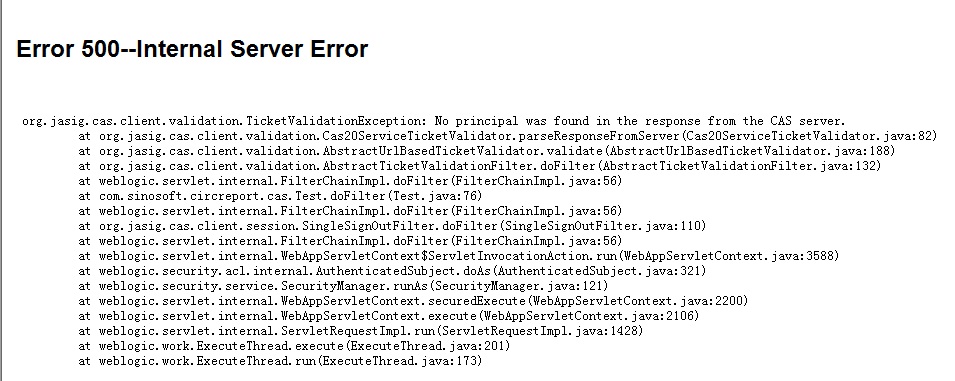关于hibernate
public static Session getSession() throws HibernateException {Session session = (Session) threadLocal.get();
if (session == null || !session.isOpen()) {
if (sessionFactory == null) {
rebuildSessionFactory();
}
session = (sessionFactory != null) ? sessionFactory.openSession()
: null;
threadLocal.set(session);
}
return session;
}
public static void rebuildSessionFactory() {
try {
configuration.configure(configFile);
sessionFactory = configuration.buildSessionFactory();
} catch (Exception e) {
System.err
.println("%%%% Error Creating SessionFactory %%%%");
e.printStackTrace();
}
}初学hibernate,我知道这里的session相当于获取连接,然后产生一个对象,用这个对象操作数据库,但这里的
sessionFactory 在经过rebuildSessionFactory()后里面包含什么?这段代码的意义是什么? --------------------编程问答-------------------- 自己顶一个 --------------------编程问答-------------------- 貌似设置什么 然后对sessionFactory 重新赋值。。。 这得看具体代码 这么看很难看出根本 --------------------编程问答-------------------- 是每个工厂都有自己的session,我想知道 这句是什么意思Session session = (Session) threadLocal.get();用来做什么的?
下面是一个jar包里的
public class ThreadLocal<T> {
private final int threadLocalHashCode = nextHashCode();
private static AtomicInteger nextHashCode =
new AtomicInteger();
private static final int HASH_INCREMENT = 0x61c88647;
private static int nextHashCode() {
return nextHashCode.getAndAdd(HASH_INCREMENT);
}
protected T initialValue() {
return null;
}
public ThreadLocal() {
}
public T get() {
Thread t = Thread.currentThread();
ThreadLocalMap map = getMap(t);
if (map != null) {
ThreadLocalMap.Entry e = map.getEntry(this);
if (e != null)
return (T)e.value;
}
return setInitialValue();
}
private T setInitialValue() {
T value = initialValue();
Thread t = Thread.currentThread();
ThreadLocalMap map = getMap(t);
if (map != null)
map.set(this, value);
else
createMap(t, value);
return value;
}
public void set(T value) {
Thread t = Thread.currentThread();
ThreadLocalMap map = getMap(t);
if (map != null)
map.set(this, value);
else
createMap(t, value);
}
public void remove() {
ThreadLocalMap m = getMap(Thread.currentThread());
if (m != null)
m.remove(this);
}
ThreadLocalMap getMap(Thread t) {
return t.threadLocals;
}
void createMap(Thread t, T firstValue) {
t.threadLocals = new ThreadLocalMap(this, firstValue);
}
static ThreadLocalMap createInheritedMap(ThreadLocalMap parentMap) {
return new ThreadLocalMap(parentMap);
}
T childValue(T parentValue) {
throw new UnsupportedOperationException();
}
static class ThreadLocalMap {
static class Entry extends WeakReference<ThreadLocal> {
/** The value associated with this ThreadLocal. */
Object value;
Entry(ThreadLocal k, Object v) {
super(k);
value = v;
}
}
private static final int INITIAL_CAPACITY = 16;
private Entry[] table;
private int size = 0;
private int threshold; // Default to 0
private void setThreshold(int len) {
threshold = len * 2 / 3;
}
private static int nextIndex(int i, int len) {
return ((i + 1 < len) ? i + 1 : 0);
}
private static int prevIndex(int i, int len) {
return ((i - 1 >= 0) ? i - 1 : len - 1);
}
ThreadLocalMap(ThreadLocal firstKey, Object firstValue) {
table = new Entry[INITIAL_CAPACITY];
int i = firstKey.threadLocalHashCode & (INITIAL_CAPACITY - 1);
table[i] = new Entry(firstKey, firstValue);
size = 1;
setThreshold(INITIAL_CAPACITY);
}
private ThreadLocalMap(ThreadLocalMap parentMap) {
Entry[] parentTable = parentMap.table;
int len = parentTable.length;
setThreshold(len);
table = new Entry[len];
for (int j = 0; j < len; j++) {
Entry e = parentTable[j];
if (e != null) {
ThreadLocal key = e.get();
if (key != null) {
Object value = key.childValue(e.value);
Entry c = new Entry(key, value);
int h = key.threadLocalHashCode & (len - 1);
while (table[h] != null)
h = nextIndex(h, len);
table[h] = c;
size++;
}
}
}
}
private Entry getEntry(ThreadLocal key) {
int i = key.threadLocalHashCode & (table.length - 1);
Entry e = table[i];
if (e != null && e.get() == key)
return e;
else
return getEntryAfterMiss(key, i, e);
}
private Entry getEntryAfterMiss(ThreadLocal key, int i, Entry e) {
Entry[] tab = table;
int len = tab.length;
while (e != null) {
ThreadLocal k = e.get();
if (k == key)
return e;
if (k == null)
expungeStaleEntry(i);
else
i = nextIndex(i, len);
e = tab[i];
}
return null;
}
--------------------编程问答--------------------
补充:Java , Java EE



